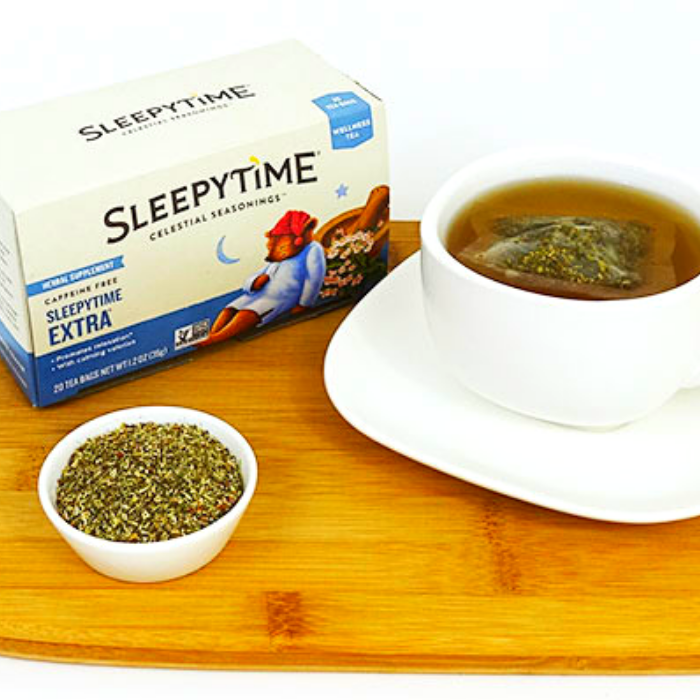

cdc.gov/media/releases/2016/p0215-enough-sleep.html

leaf extract in the treatment of volunteers suffering from mild-to-moderate anxiety disorders and sleep disturbances. Aqueous fraction from Hibiscus sabdariffa relaxes mesenteric arteries of normotensive and hypertensive rats through calcium current reduction and possibly potassium channels modulation. If you’re still having issues, consider making an appointment with a healthcare professional. And try to make sure you’re not eaten up with stress and anxiety when your head hits the pillow - yoga or meditation may help. Do what you can to make your sleep environment as cool, dark, and quiet as possible. It may be time to call in reinforcements.Ĭonsider your overall sleep hygiene. We’ll refer you to our handy tea brewing guide for all the details, but to put it simply: Steep the tea in hot water for about 5 minutes (or longer if you like a stronger tea) and sip sip sip. Some sleepy tea makers say you can have 2 to 3 cups in the evening, but start with 1 cup before bedtime to see how it affects you. When you’re ready to get sleepy - typically 30 minutes or so before bedtime. When’s the best time to drink my sleepy tea? If you’re having a tough time staying asleep, chamomile, melatonin, and valerian root all help improve sleep quality. If you’re looking for help falling asleep, lemon balm, passionflower, melatonin, and kava teas are where it’s at. If you’re looking to reduce anxiety and stress, chamomile, lemon balm, passionflower, valerian root, gotu kola, kava, tulsi, and lavender teas are all great options. Others have multiple benefits that can help you get a great night’s sleep. Some teas are great stress reducers, while others will help knock you out. It really depends on what you’re looking for. Several of these brands offer non-organic versions, but many higher-end tea brands are made exclusively with organic ingredients.įrequently asked questions Which tea is best before bed? (Psst… toss in some organic honey if you’re looking for a bomb natural sweetener that’s also a throat and tummy soother.) Qualityįinally, make sure to select a tea that matches your values and dietary preferences. If you’re one of those people, look for a valerian-free sleep tea. Some people say valerian root can taste, well, weird. If you’re gonna drink it every night, you gotta love the taste. How do you brew? Tea bags are more convenient than loose tea, to be sure, but loose tea allows you more control over the strength of your tea, and tea aficionados generally prefer it. Organic teas will be more expensive than their non-organic counterparts, and the ingredients (and concentrations of ingredients) in each tea can also have a big impact on price. Generally, big-brand teas you can find in the grocery store (like Bigelow and Celestial Seasonings) are less expensive. Passion Flowers are not only beautiful, exotic flowers but are traditionally used for improving sleep quality and supporting normal sleep patterns.And if you’re just looking for a yummy caffeine-free cup of tea that might be able to soothe your tummy troubles, peppermint is a great option. Oats are traditionally used to help treat stress-induced fatigue and to help give you a restful sleep. Lemon balm is often used in sleep supplements due to its calming, sleep-enhancing and stress-relieving properties. Officially known as Melissa officinalis, lemon balm is a citrus-scented herb that has many culinary and therapeutic uses.

Chamomile tea has traditionally been used to help ease any digestive problems linked to anxiety. Chamomile flower also contains an antioxidant called apigenin, known to calm anxieties. The essential oils in chamomile help calm our bodies and sympathetic nervous system, which improves your sleep.

Chamomile flowerĬhamomile flower is another frequent ingredient in soothing teas and cosmetic products. You can benefit from this by inhaling, ingesting or applying the oil topically. Lavender’s soothing effects are due to its essential oils. Lavender is notorious for its relaxing properties that help relieve stress and improve sleep. The best herbs and spices to help you sleep: Lavender
Best herbal tea for deep sleep plus#
If you need help drifting off, here are our recommendations on the best herbal teas for sleep, plus helpful information on what ingredients to look out for in sleepy tea blends. It's common knowledge that herbal teas help you have a good night sleep, but why? Herbs and spices have been used for thousands of years to help calm anxiety, soothe the digestive system and aid you to fall asleep.


 0 kommentar(er)
0 kommentar(er)
